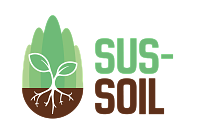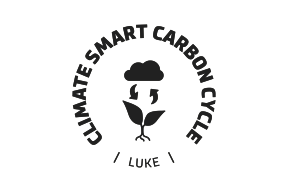Sustainable Soil and Subsoil health promotion by implementing agroecological land use and management to enhance ecosystem services delivery for society
Project overview
SUS-SOIL represents a comprehensive four-year research initiative (2024-2028) funded by the European Union's Horizon Europe programme (Project ID: 101157560) with a total budget allocation of €5,997,613.75. The project addresses the critical challenge articulated in the EU Soil Strategy: approximately 60-70% of European Union soils currently exhibit compromised health status and are subject to severe degradation processes.
This initiative adopts a multidisciplinary research framework structured around the development and implementation of 15 Subsoil-Living Laboratories (LLs) strategically positioned across eight biogeographic regions: Boreal, Atlantic, Continental, Alpine, Pannonian, Mediterranean, Black Sea, and Anatolian regions, encompassing diverse ecosystems throughout Europe and North Africa.
Scientific rationale and methodological approach
The project's conceptual framework acknowledges that while topsoil degradation has received considerable research attention, subsoil health dynamics remain insufficiently characterized despite their fundamental importance to ecosystem function. Degradation processes affecting topsoil strata simultaneously compromise subsoil integrity, resulting in diminished ecosystem service delivery capacity.
The methodological approach incorporates:
- Systematic inventory, analysis, and comparative benchmarking of diverse agroecological subsoil management (ASM) practices
- Quantitative assessment of land use impacts on subsoil spatial variations and temporal dynamics
- Integration of optimal ASM practice combinations in both rural and urban contexts within comprehensive regional frameworks
- Analysis of three representative soil typologies within each Living Lab to investigate soil degradation trajectories and long-term land use effects
- Development of agricultural system idiotypes that integrate complementary agroecological subsoil management practices as viable alternatives to conventional agricultural systems
Project objectives and expected outcomes
The SUS-SOIL initiative aims to generate substantive scientific and practical outcomes including:
- Development of a comprehensive subsoil/soil monitoring database (S-DB) designed for interoperability with established European soil information systems (LUCAS and ESDAC databases)
- Rigorous analysis of long-term agroecological subsoil management land use practices across diverse soil types, including quantitative modeling of their relationship with rural and urban ecosystem service provision
- Construction of regionally-optimized farm idiotype models that integrate best ASM practices to enhance ecosystem service delivery at regional scales
- Implementation of a Subsoil Decision Support Tool (S-DST) incorporating soil degradation parameters and relevant business models
- Formulation of a subsoil policy strategy framework to facilitate adoption of optimal ASM practices
Societal impact and policy relevance
SUS-SOIL outcomes will serve as critical reference points to enhance awareness among land managers and public authorities regarding subsoil threats and associated risks. The project directly supports the European Union's agroecological transformation agenda by specifically addressing subsoil dynamics, thereby enhancing ecosystem service delivery, promoting water security, and contributing to climate change mitigation strategies for both rural and urban ecosystems.
The project contributes partially to several specific objectives of the EU Mission Soil, including:
- Conservation and enhancement of soil organic carbon stocks
- Reduction of soil pollution and facilitation of restoration processes
- Improvement of soil structure to enhance habitat quality for soil biota and crops
Funding framework
- Project duration: 1 October 2024 - 30 September 2028
- Call identifier: HORIZON-MISS-2023-SOIL-01-01

